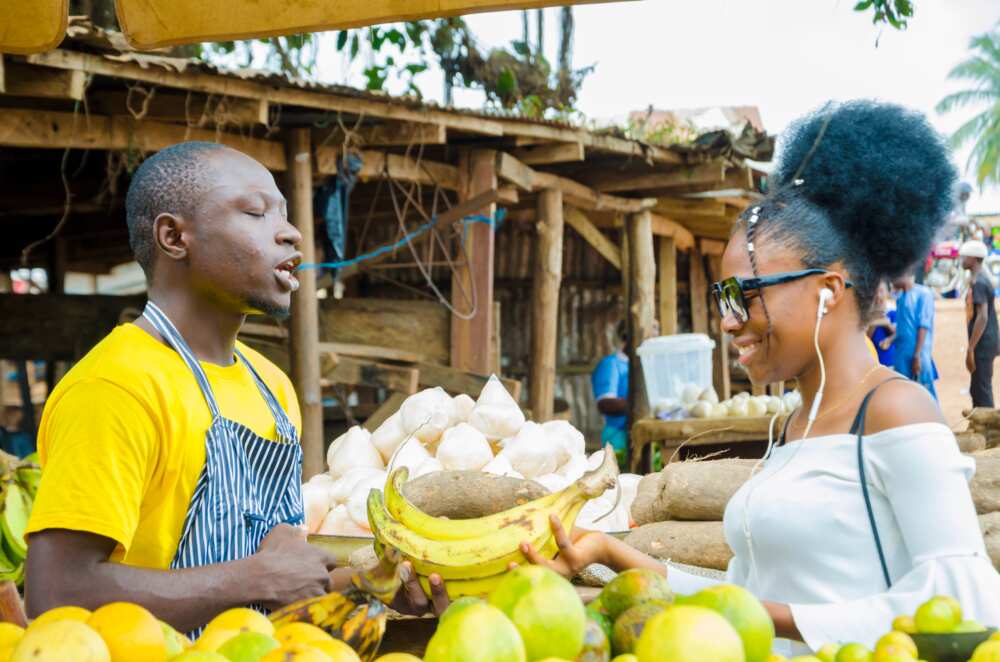GDP Growth: Best-performing Sectors in Nigeria in Q2 2022 as Analysts Say Growth Not Real
- The growth in the GDP of Nigeria is due to the contributions of other sectors of the economy in the second quarter of 2022
- Sectors like transport, mining, services and technology played a huge part in the 3.54 per cent of the GDP
- Analysts have expressed mixed reactions to the growth some saying there is hope for the country's economy
PAY ATTENTION: Click “See First” under the “Following” tab to see Legit.ng News on your Facebook News Feed!
The National Bureau of Statistics (NBS) said that Nigeria’s economy grew by 3.54 per cent in absolute terms in the second quarter of 2022, a decline of 1.47 per cent increase in comparison to 3:11 per cent in the second quarter of 2011.
The NBS stated that the growth dipped from 5.01 per cent in the second quarter of last year, when fast growth was recorded as COVID-19 ravaged the economy in the second quarter of 2020.

Read also
Jim Ovia, Zenith Bank chairman, earns N1.5 billion from interim dividends in second-half of 2022

Source: Getty Images
Also, the new price increase has impacted the economy in the second quarter of 2022.
Best-performing sectors
PAY ATTENTION: Follow us on Instagram - get the most important news directly in your favourite app!
Road transport
Leading the pack is road transport in the second quarter. The sector recorded a growth rate of 56.38 per cent.
According to BusinessDay, the growth in the sector is declined from 92.38 per cent in the second quarter of 2021, an improvement from -24.63 per cent in the first quarter of 2021.
Coal mining
In second place is the second best-performing sector, coal mining. It grew by 36.06 per cent. The growth rate witnessed in the period reveals an increase from 34.14 per cent in the same period the year before.
The sector also witnessed an improvement from -12.97 per cent in the first quarter of 2022.
Air transport
The Air transport sector grew by 22.45 per cent in the second quarter from a 4.98 per cent growth rate as reported in 2021.
Air transport’s growth rate dipped during the quarter under review from 50.68 per growth rate reported in Q1 of this year.
Quarrying and other minerals
The report also stated that quarrying and other minerals grew by 22.15 per cent in Q2 of 2022 compared to the 5.75 per cent second quarter of 2022.
The growth rate also improved during the period from a -13.72 per cent growth rate in the second quarter of last year.
Analysts have taken a swipe at the recent figure released by the NBS, stating that the growth recorded did not reflect in the livelihoods of Nigerians.
Analysts differ on GDP growth
Journalist and social commentator Ishaya Ibrahim said that the International Monetary Fund (IMF) has retained Nigeria’s growth at 3.4 per cent.
Ibrahim said that the 3.4 per cent growth is as a result of general increase in the price of oil and the performance of the non-oil sectors like services and tech.
“Overall, this has little impact on Bulus and Balarabe in Kaduna, or Akpan and Ekaette in Akwa Ibom. The tricky thing about GDP as a measure of economic prosperity is that it does not account for income redistribution. Nigeria's food crisis is a result of the banditry in farming communities in the North. This has stalled real growth in crop production, which accounts for the largest chunk of employment,” Ibrahim said.
Osaze Igiebor, banker and economist, said despite the fact that the GDP growth missed certain milestones in the economy, there is still something to be cheerful about.
“It means that despite the hoopla surrounding the economy recently, there is still hope if certain policies are taken. It’s not yet over for Nigeria.”
Productive economy, GDP growth, other economic plans of Obi, Tinubu, Atiku
Legit.ng reported that the presidential candidates of the three leading political parties have been making vast mouthwatering economic plans for Nigerians ahead of next year’s election.
The economy is at the forefront of the campaigns of the various candidates, apart from security and corruption, which analysts say Buhari failed to tackle as he exits power in 2023.
Nigerians yearn to know what is the economic plans of the three leading contenders for the plum job as they head to the polls next year.
Source: Legit.ng



